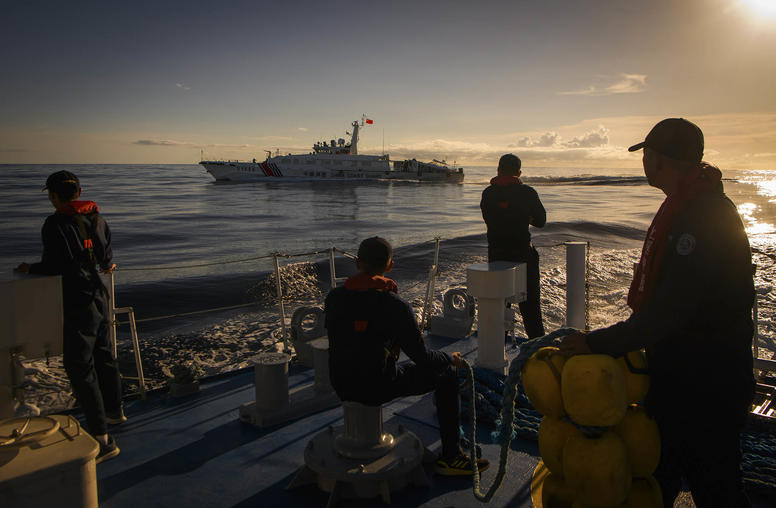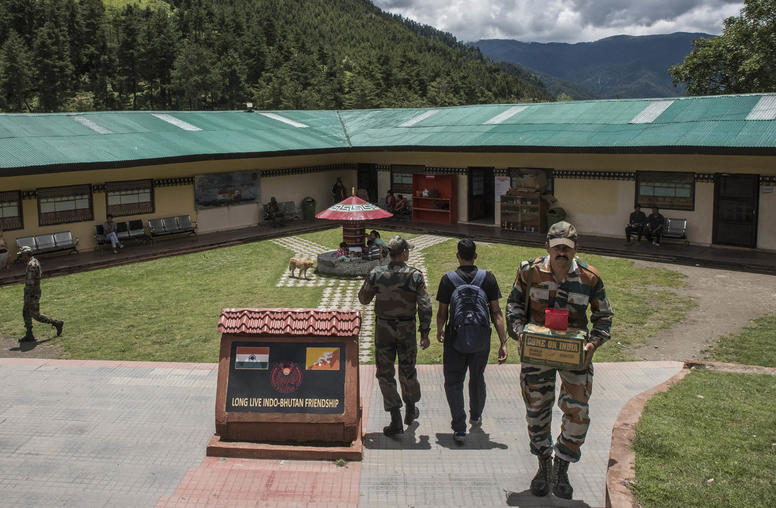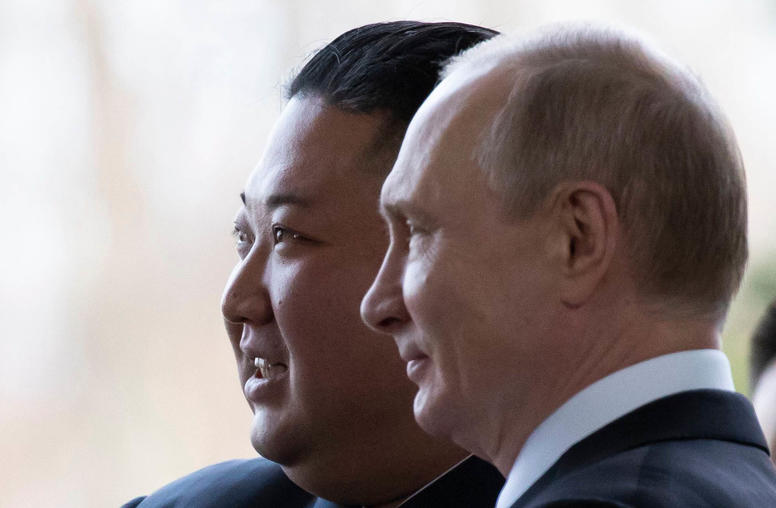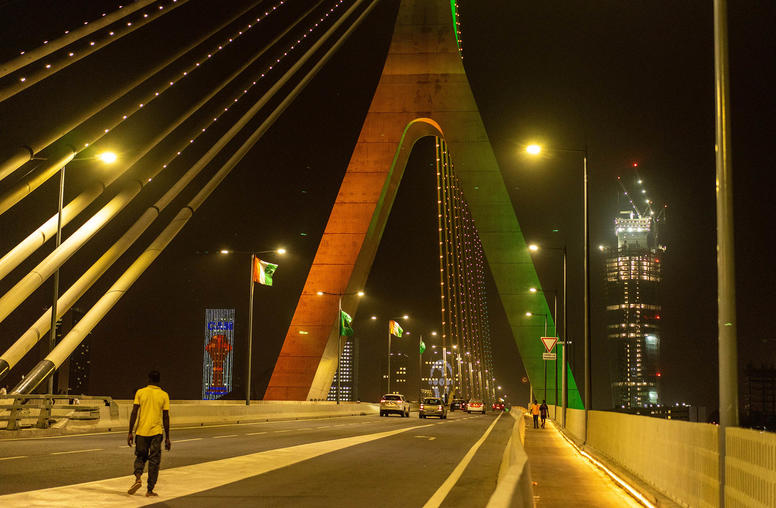Publications
Articles, publications, books, tools and multimedia features from the U.S. Institute of Peace provide the latest news, analysis, research findings, practitioner guides and reports, all related to the conflict zones and issues that are at the center of the Institute’s work to prevent and reduce violent conflict.

U.S., Japan, Philippines Strengthen Strategic Bonds to Counter China
Next week’s U.S.-Philippines-Japan summit comes against the backdrop of heightened tensions between Manilla and Beijing in the South China Sea, known as the West Philippines Sea in the Philippines. Last month alone saw two incidents of China’s so- called “gray zone” activities, with Chinese ships colliding with Philippines Coast Guard vessels on March 5 and blasting a Philippines supply boat with a water cannon on March 23. These disputes in the West Philippines Sea — an issue on which U.S., Japanese and Philippine interests closely align — will feature prominently when President Joe Biden, Philippine President Ferdinando Marcos Jr. and Japanese Prime Minster Fumio Kishida meet in Washington on April 11.

How a Fractured Myanmar is Navigating U.S.-China Rivalry
As the rivalry between the United States and China intensifies, Southeast Asian countries have been forced to navigate this growing power competition. The challenge has proven formidable even for those with strong governance and stability. For Myanmar — where a civil conflict between the ruling military junta and a loose alliance of resistance groups recently entered its fourth year — developing a cohesive approach to navigating U.S.-China competition might seem unattainable and unimportant in the current moment.

Asfandyar Mir on Why ISIS-K Attacked Moscow
ISIS-K’s recent attack on the Russian capital was, in part, intended to assert the organization’s growing capacity to inflict terror beyond its home base of Afghanistan. “By reaching Moscow, ISIS-K is trying to signal it has the geographic reach to hit anywhere in the world,” says USIP’s Asfandyar Mir.

It’s Time to Resolve the Korean War
The greatest challenge to peaceful coexistence between North Korea and the United States is the technical state of war between the two countries. The United States and the Soviet Union may have been at ideological loggerheads, used proxies in regional conflicts and come close to direct superpower blows — but they were not in a state of war. Resolution of the Korean War should be set as a stated U.S. policy objective. This is a necessary Step Zero on the road to peaceful coexistence with North Korea today and could reduce the risk of deliberate or accidental conflict, nuclear or otherwise.

Moscow Concert Hall Attack Will Have Far-Reaching Impact
On Friday, terrorists attacked the Crocus City Hall outside Moscow leaving 140 people dead and 80 others critically wounded. Soon after, the Islamic State claimed responsibility for the attack. The terrorist group, which is headquartered in Iraq and Syria, has several branches, including in South and Central Asia. Press reports suggest the U.S. government believes the Afghanistan-based affiliate of the Islamic State, ISIS-Khorasan (ISIS-K), was behind the attack. The Biden administration has publicly noted that it had warned the Russian government of the terrorism threat in early March in line with the procedure of “Duty to Warn.”

What’s Driving India-China Tensions?
Since deadly clashes between India and China on their 2,100-mile disputed border — known as the Line of Actual Control (LAC) — nearly four years ago, the two countries have remained in a standoff and amassed an increasing number of troops on either side of the LAC. While India and China have held regular exchanges at the corps commander level since 2020, each side has also continued to militarize and invest in infrastructure in the high-altitude border regions, which may exacerbate risks of clashes or escalation. India-China competition has also deepened beyond the land border, particularly in the Indian Ocean region.

Three Conditions for Successful Engagement with North Korea
The September 13, 2023, meeting between Vladimir Putin and Kim Jong Un in Russia’s Amur Oblast marked a significant crippling of the decades-long U.S. pressure-based approach toward North Korea. The strategy of isolating and pressuring North Korea through United Nations Security Council resolutions to compel its nuclear disarmament in exchange for providing normalized relations, economic aid and sanctions relief may or may not ever have been a winning strategy, but now is no longer viable. The strategy required cooperation among the United States, South Korea, China and Russia, but this now seems a distant prospect.

Indonesia’s Nickel Bounty Sows Discord, Enables Chinese Control
As the world moves toward cleaner forms of energy, specific minerals and metals that support this transition have become “critical.” Nickel — a major component used in electric vehicle (EV) batteries — is one such critical mineral. Demand for battery metals is forecast to increase 60-70 percent in the next two decades. This may be a boon for some. But in Indonesia, which produces more than half of the world’s nickel supply, it has led to political, environmental and ethical complications.

U.S. Plans to Build Africa’s Infrastructure Bring Opportunities, Challenges
An interesting trend is emerging in U.S.-Africa relations: even as the United States moves to counter Chinese influence in key sectors like critical minerals, China’s influence in Africa is subtly reshaping the United States’ own approach to engaging with the continent.

In the Pacific, U.S. Risks Letting Down its Closest Partners
As the United States seeks to shore up alliances and maintain regional stability amid increasing Chinese competition in the Pacific, it needs to mend strained relations with the island states that are its closest partners. The U.S. government describes Palau, the Federated States of Micronesia and the Marshall Islands as “the bedrock of the U.S. role in the Pacific” and “crucial” to U.S. defense there. After months of delay that have undermined those relationships, the United States this month renewed the funding that underpins their government budgets. But significant bilateral strains will require further U.S. attention.